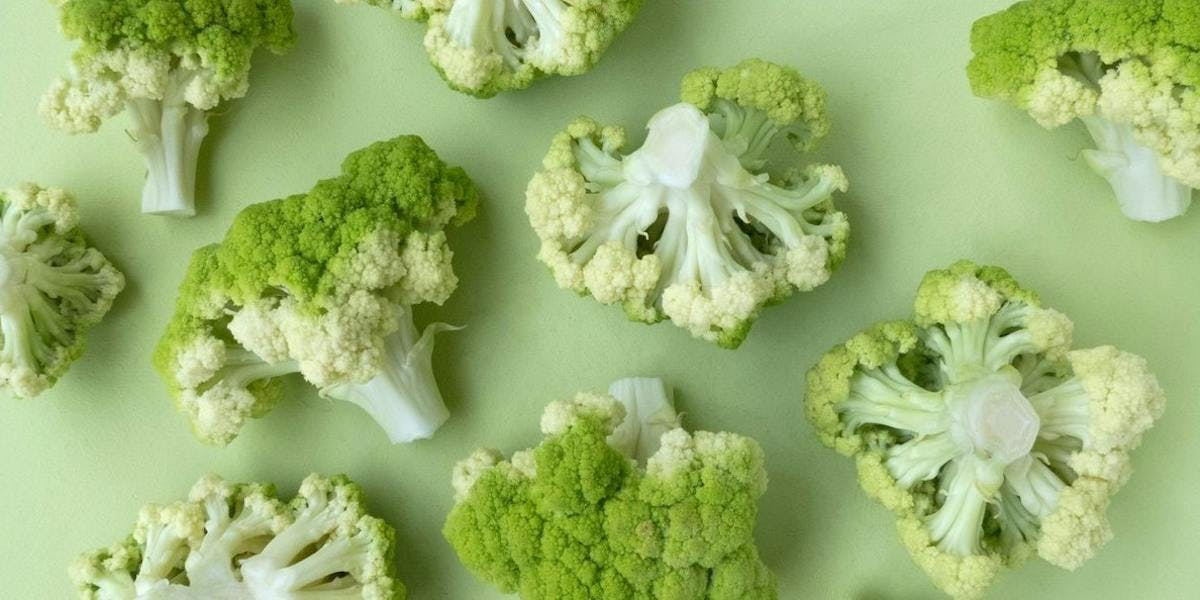Lifestyle
The Benefits of a Lower Carbohydrate Diet
by Emily Neill
min read
Low carb diets can bring various health benefits – learn what these are, and how to get them through delicious plant-based meals.
Carbohydrates can be found in many types of food – from pasta, potatoes, and rice, to your favourite chewy chocolate chip cookies. They’re an important source of energy and form part of a healthy balanced diet.
In this post, we shed light on the realities of a low carbohydrate diet with expert tips from registered Dietitian and elite sports nutritionist, Clare Logan. And if you’d like to give a low carbohydrate diet a try, we also share our favourite carb-light vegan meals to help you begin to do so. First off, what are the health benefits to eating less carbs?
Short-term weight loss
Carbohydrates are a major, and essential, source of energy but there’s a reason the phrase ‘no carbs before Marbs’ was coined. When you eat them, your body breaks them down into glucose (sugar) which is absorbed into the blood and then cells via insulin. If you’re eating more carbs than your body needs, the excess glucose is converted and stored as fat for later use.
Without going into too much detail, there are two main reasons why a low carb diet can lead to weight loss; firstly, it instantly reduces your calorie intake; secondly, it can lead to ketosis – a process in which your body starts using the energy reserves stored in fat to power your body, as opposed to simply relying on your carbohydrate intake (provided you have enough fat stores in the body to do so)
Regulate cholesterol
Cholesterol is a complex topic, but there’s evidence to suggest that a low-carb diet boosts levels of ‘good cholesterol’. The good cholesterol in your body is known as high-density lipoprotein (HDL), and is composed of both cholesterol and protein. The reason why it’s considered beneficial is that it helps to produce oestrogen and vitamin D, as well as protecting against heart disease. Given that it’s such a nuanced subject, however, we’d advise speaking to a medical professional to fully understand your cholesterol levels and how to manage them.
Lower blood sugar levels
As carbohydrates are broken down into glucose, consuming less of them naturally leads to lower blood sugar levels. Of course, this isn’t the only way to lower blood sugar levels, but it’s still important to know for those with Type 2 diabetes. If you do have Type 2 diabetes, we’d always recommend speaking to your doctor before making any significant changes to your diet.
Reduced appetite
When you reduce your intake of carbs, there’s more space on your plate for extra fats and protein. Given that they generally take longer to breakdown and digest, they leave you feeling fuller, for longer. Carbohydrates are brilliant as fast releasing sources of energy – hence their importance as both brain fuel during exams and before a physical challenge, but if you’re looking for a gradual release of energy, opts for complex carbs (oats, chickpeas, and beans, for instance) alongside fats, proteins, and vegetables.
Should we be eating fewer carbs?
Nutritionist Clare's advice:
“Eating a low-carb diet means cutting down on the amount of carbohydrates (carbs) you eat to less than 130g a day. But low-carb eating shouldn’t be no-carb eating. Some carbohydrate foods contain essential vitamins, minerals and fibre, which form an important part of a healthy diet.
It’s really important to first reduce your carb intake from unhealthy sources such as sugary drinks, pizzas, cakes, biscuits, chips, white bread, fruit juices and smoothies. And it’s a good idea to get your limited carbs from healthy high-fibre carb foods, such as pulses, nuts, vegetables, whole fruits and whole grains, as well as unsweetened milk and yoghurt.
A low-carb diet isn’t for everyone and there’s no ‘one size fits all plan’. The strongest evidence we have to show the benefits of low-carb diets is in adults with obesity and those with type 2 diabetes who need to lose weight. Research suggests that the best type of diet is one that you can maintain in the long term and if you have a health condition, such as diabetes, it’s important to speak to your health professional before making changes to your diet.”
Vegan Low Carb Meals
At allplants, our plant-based meals are created to be nutritionally-balanced, giving you all of the vitamins and minerals you need to stay fit and healthy. Some meals, however, are naturally lower in carbs than others. Here are our favourites:
- Thai Green Curry – Made with fresh broccoli, new potatoes, and edamame beans, our fragrant Thai green curry has a gentle hint of heat.
- Roasted Veggie Lasagna – Layers of aubergine, courgette, and lasagna topped with a roasted red pepper and tomato sauce, and a creamy garlic béchamel.
- Mushroom and Chickpea Korma – A sweet, creamy almond and coconut korma with turmeric chickpeas, chunks of roasted aubergine, and garlic mushrooms.
- Tempeh Rendang Curry – Chunks of roasted aubergine, cauliflower, baby corn and marinated tempeh served in an aromatic Indonesian sauce with coriander wild rice.
Whilst carbs are an essential part of a balanced diet, choosing which foods you get them from and how much you’re consuming can be beneficial to your health. And it doesn’t even need to impact your enjoyment of food – just take a look at our full menu of plant-based ready meals...each one is tasty and nutritious!
By Emily Neill
Emily is our Content and Community Assistant by day, and qualified PT by… later that day. She couldn’t live without exercise (makes sense) so can usually be spotted in her favourite spin class, with our Three Mushroom Risotto for afters.
Let us take care of dinner
We help to make eating more plants easy and delicious. Fancy letting us take care of dinner? Check out our delicious meals here.
Shop now
